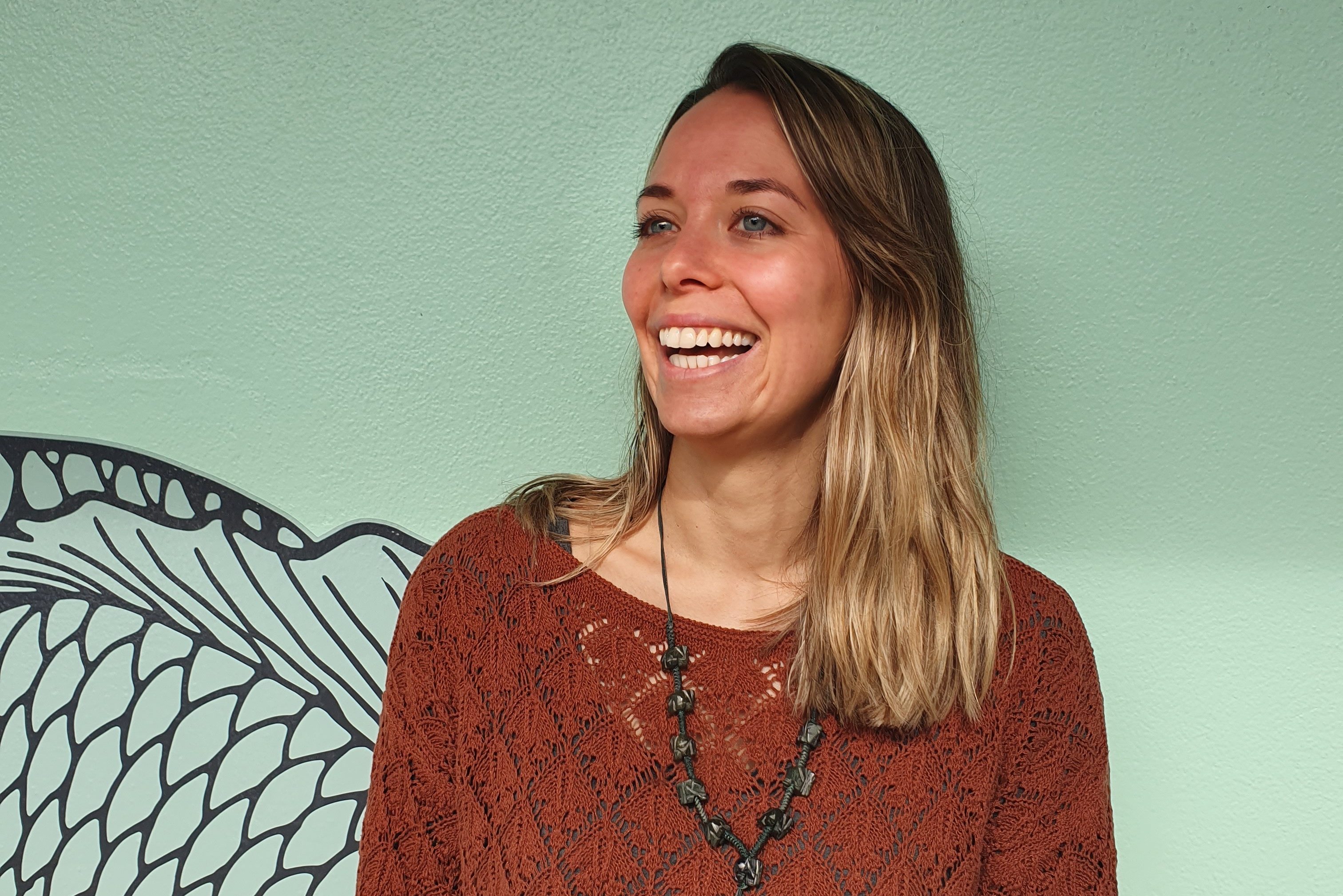Spotlight on… The Green Stew

Every month we shine a spotlight on some of the environmental pioneers in yachting and beyond who have adopted our PACT in their mission to take on ocean plastic pollution. This month, we speak to Eco Yacht Stewardess Lauren Ryburn, otherwise known as ‘The Green Stew’. Lauren talks to Clear Ocean Pact about how she is changing plastic practices at work and at home, the impact this is having on crew and guests and her work to bring an eco-conscious mindset to the world of luxury yachting.
What motivates you to make a difference in the industry?
In our industry we have the wonderful privilege of sailing and spending our days exploring the vast and beautiful abundance of the ocean. It’s a shame then that we seem to be taking more from the ocean than we give back.
What motivates me is the hopes of one day seeing the yachting industry in a symbiotic relationship with the ocean because, let’s face it, there’s no pleasure in sailing on polluted and plastic-ridden waters!
Every day, I see many unsustainable practices being carried out within the industry and I know that there’s a better way we can be doing things. There is so much potential for improvement and so many ecofriendly alternatives available to us these days that there really isn’t any excuse.
With all the eco conscious people in the industry now that are making such a difference in their own ways it is very inspiring to see.
Knowing all of this and knowing that there’s a better way drives me to inspire crew to make changes, and to help in the best way I can to drive the yachting industry towards a greener, more sustainable future.
Since adopting the PACT, what changes have you made on board to reduce your plastic footprint?
We have made several significant changes on board to reduce the use of single-use plastic and get people thinking differently about eco-alternatives to the items they use every day. This includes:
- Water filtering system installed including sparkling water tap
- Reusable drink bottles for crew and guests on-board
- Removing plastic bin liners from most of our small bins, switching to biodegradable liners where necessary
- Switching to plastic-free toiletries, in particular alternatives for q-tips, toothbrushes, dental floss, sanitary products
- The use of reusable products such as silicon zip lock bags, silicon food covers, beeswax wraps for food
- Conscious provisioning – actively choosing to buy products with minimal or no plastic packaging
- Reusable shopping and produce bags for provisioning
What impact have you seen so far?
Since, implementing these changes on board, we have seen a huge reduction in the amount of general waste we are producing and the rate at which our plastic recycling bins fill up.
I have noticed a happier overall mood on-board and I think the crew feel good in themselves about doing their part to improve the wellbeing of the ocean and the world by reducing plastic and adopting eco-friendly practices on board. We’re seeing both ecological and personal benefits!
Has it changed how you approach the use of plastic in your personal life?
Yes, it definitely makes you realise that there are many areas in your life where you are using plastic without a second thought.
Once you begin to view things differently and notice the amount of plastic we are using on a daily basis – often unconsciously – you can begin to find alternatives and make a conscious effort to avoid plastic use. For example I have been:
- Keeping and reusing glass jars for storage
- Taking my own paper bags and ziplocks to the supermarkets for the nuts & seed dispensers
- Taking my own containers to the take away store and restaurants for left overs
- Using glass spray bottles for cleaning and refilling them with my own cleaning products
- Choosing products in the supermarket that are made of glass instead of plastic (e.g. glass jam jars, sauce bottles and yoghurt containers – many companies seem to be providing glass packaging these days which is great to see)
How do other crew members approach the ocean plastic problem?
Most crew members are very obliging and excited about making positive change. Once viewing their workplace through “eco lenses”, many start to notice the practices and products that use excessive amounts of plastic and will start to make the changes themselves.
However, sometimes it can be hard to implement change. Many crew members come from different backgrounds and are sometimes not as well educated when it comes to environmental awareness.
Therefore I believe it pays to take the time to provide guidance and information when it comes to implementing new changes on board. Usually if something is explained and people understand the motivations behind something, then they are much more likely to change their practices and behaviours.
I find that playing environmental documentaries on the crew mess television is a great way to inform and inspire crew. Also, crew beach cleans are a great way for people to see first-hand the effects of plastic pollution and the impact of doing something about it – for the environment but also for themselves.
What changes are the most challenging to make on board?
Sometimes it can be hard to get people to steer away from their “trusted favourites” when it comes to cleaning products and avoiding plastic packaged snacks and food.
Departments such as the Galley find it hard to give up plastic products like cling film, although they have reduced their use by using things like silicon food covers and beeswax wraps at times.
What do you think are the major barriers to adopting sustainable plastic practices in the industry?
Sometimes, mentalities in the yachting industry can be very old fashioned and it can be hard to get people to break away from old traditions and try new things.
Many people can be stuck in their own habits and it can be hard to persuade them to change. For example, guests with plastic bottled water preferences and chefs with a reliance on products such as cling film.
Are your guests interested in reducing their plastic footprint? If so, how have they responded since you have adopted the PACT?
We have been very lucky that our guests are very switched on and passionate about the environment, reducing plastic use and raising awareness. They also enjoy some of the eco-alternatives – owners and their guests very much enjoy having their own designated water bottles when on board and they find it a novelty.
It has also inspired some creative innovation! The owners came up with great initiatives themselves such as such as requesting the installation of sparking water tap in the main pantry instead of drinking San Pellegrino and discussed the possibility of installing a larger recycling storage plant on board so that we can hold onto our recycling when in remote places, waiting until we reach a marina that recycles.
What further support is needed to make an environmentally sustainable yachting industry a reality?
We need more support coming from the top. More regulations in place when it comes to sustainable practices.
More mandatory education provided for crew, ideally certifications and a certain level of environmental awareness that needs to be completed before crew can work on-board a vessel.
What would you like to see in the future for the industry?
The yachting industry in a harmonious balance with the environment. Unfortunately, at the moment, the relationship is very one-sided.
Anything to add?
Please join our ’Conscious Yachties’ Facebook group, where yacht crew are joining together to support one another, share insights and knowledge and work towards a greener, more sustainable future for the yachting industry.
Also please feel free to check out my website where crew can find information, insights and advice on all things green and where to start when implementing eco-changes on board their yachts. Or follow me on Instagram @the.green.stew.
Do you want to make a change on board and take on plastic pollution for the sake of our oceans? Sign up to the PACT today.
If you have already adopted the PACT and want to share your progress or just want to tell your eco-story, we want to hear from you! Please contact our Communications Manager Kailey Nolan here.
